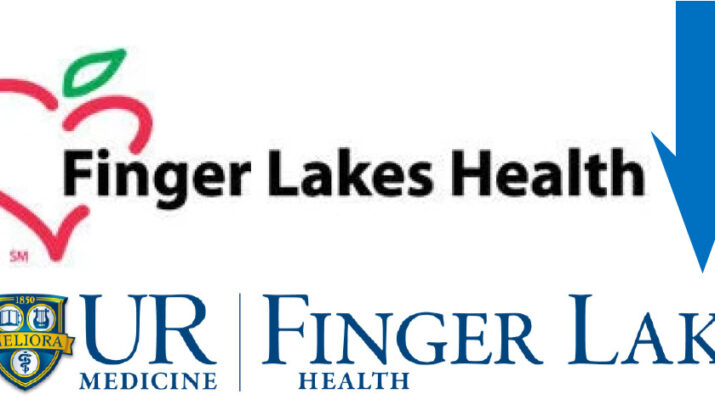Leaders say initiative will ensure quality of health in the Finger Lakes area, but an expert says merging may bring some drawbacks
By Stefan Yablonski
 The trend these days is for smaller hospitals to merge with larger systems to improve patient care and save money.
The trend these days is for smaller hospitals to merge with larger systems to improve patient care and save money.
Finger Lakes Health officially joined the health system led by the University of Rochester Medical Center on Aug. 1.
“Affiliation ensures that we can continue to provide vital services for all our patients and focus on expanding their health care choices in the years to come,” said Jose Acevedo, president and CEO of Finger Lakes Health. “We are proud to join the University of Rochester Medical Center, a center of research and patient care with a reputation for exceptional innovation, quality and safety.”
The affiliation maintains and expands access to high-quality health services close to home in the communities of eastern Ontario, Seneca, Yates and Wayne counties served by Finger Lakes Health, according to officials of both institutions.
“This connection to one of the nation’s leading academic medical centers will build upon established clinical partnerships, increase access to specialty care and enhance our ability to serve our communities for generations to come,” Acevedo said in a press release.
Finger Lakes Health employs about 1,350 doctors, nurse practitioners, physician assistants, nurses and staff members who join more than 27,000 faculty and staff members employed by URMC and its UR Medicine affiliates.
However, it isn’t always a good thing.
According to Thomas H. Dennison, professor emeritus at The Maxwell School, Syracuse University, there can be some drawbacks.
“Too much dominance can change the way a system negotiates with insurers and that drives up costs because payment rates go up,” he said. “The other allegation is that quality doesn’t really improve. Often what you find is the hospital that is merging into the larger system is a hospital that has lower quality scores at the beginning of the relationship and it takes long time for those scores to come up. I don’t know if that is the case with Finger Lakes; I haven’t looked into that.”
Also, unions don’t like it, employees don’t like it often because it does affect terms of their employment. Members of the medical staff often don’t like it because it takes away the latitude and deals that they had in place. And, there can only be one chief [of something]. So there are those arguments against it, he added.
The smaller hospitals tend to lose local control, they’re not going to have any local governance; and largely, that is what happens, he said.
The Finger Lakes deal follows a recently signed agreement to collaborate with New York State Attorney General Letitia James to ensure the affiliation meets the health-care needs of Finger Lakes residents.
Patients are dependant on high technology services, medical staff and equipment — expensive equipment, Dennison said. Hospitals need to be able to provide state-of-the-art services — equipment and specialty physicians.
The affiliation proceeds — after several years of planning — following anti-trust investigations by the Federal Trade Commission and New York State Attorney General’s Office.
The systems provided extensive documents and data demonstrating substantial benefits to patients and communities served by other rural hospitals after they joined UR Medicine (the health system led by URMC) and showing that the same will be true for Finger Lakes Health.
The parties will develop a detailed plan for maintaining and expanding patient services in the Finger Lakes Health service area, reporting progress to the attorney general annually for five years.
Acevedo will continue overseeing all administrative operations and patient services provided by the new affiliate, which will be known as UR Medicine Finger Lakes Health.
He noted the advantages of joining a health system that has built meaningful, productive affiliations with other rural hospitals in Upstate New York — at a time when rural hospitals in other parts of the country are financially fragile and at risk of closure.
Under the affiliation plan, URMC will work with Finger Lakes Health to expand access to a range of primary and specialty care services; support implementation of the electronic medical record used by all UR Medicine affiliates to provide patients a seamless care experience; build operational efficiencies through group purchasing; and help recruit physicians, nurse practitioners and physician assistants.
“The potential is there to improve access for patients; the potential is there for quality improvement,” Dennison said. “They can save a lot of money and improve the quality of care if they can pull this off successfully.”

